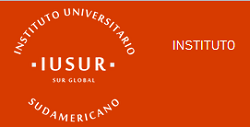Considerations for developing digital research skills in a virtual environment
DOI:
https://doi.org/10.25087/resur12a13Keywords:
Project Based Learning (PBL), Flipped Classroom, Digital Research Skills, Educational Intervention ProjectAbstract
Research training is acquired by students in Mexico in high school by the subject of Methodology of Research and similar subjects like reading workshops and drafting; however, upon reaching the higher level, students have serious limitations in research skills. For this reason, this work presents the progress of an Educational Intervention Project that aims to account for digital skills for research in undergraduate students; It is based on the Action- Research methodology and is based on constructivism, focused on the skills approach. The group selected as the object of study are the students of the fourth semester group "A" of the Petroleum Process Engineering career at the Universidad para el Bienestar Benito Juárez García, at Poza Rica, Veracruz. In the diagnostic phase, the following instruments were applied: VAK test, study conditions test, semi-structured interviews, observation guides and an instrument made up of 43 questions that revealed the level of mastery over digital skills required by students to improve in research, since 83 % of Students do not use indexed databases to search for reliable sources of information, 66 % are not considered suitable to consult virtual libraries and 67 % do not consult articles and scientific journals when researching, due to these results the competencies of: search and selection of scientific texts and critical thinking in the analysis of scientific texts. Given the qualitative evaluation of the results obtained, it was determined that Project Based Learning (PBL), in flipped Classroom modality, is the guideline to design the strategy to be implemented in the Educational Intervention Project through which it is expected to develop digital research skills.
Downloads
References
Barriga, R., & Hernández, D. (1999). Estrategias para un aprendizaje significativo: una interpretación constructivista.
Beltrán, A. L. (2003). La investigación-acción: Conocer y cambiar la práctica educativa (Vol. 179). Grao.
Freire, E. E., Ríos, A. R. R., & Cuenca, N. P. T. (2016). Formación de competencias investigativas en los estudiantes universitarios. Atenas, 1(33), 18-31.
George Reyes, C. E., & Salado Rodríguez, L. I. (2019). Competencias investigativas con el uso de las TIC en estudiantes de doctorado. Apertura (Guadalajara, Jal.), 11(1), 40-55.
Gómez, B. R. (2005). Aprendizaje basado en problemas (ABP): una innovación didáctica para la enseñanza universitaria. Educación y educadores, (8), 9-20.
López Cuachayo, Marco Antonio (2008). El Aprendizaje Basado En Problemas. Una Propuesta En El Contexto De La Educación Superior En México. Tiempo de Educar, 9(18),199-232. ISSN: 1665-0824. Disponible en: https://www.redalyc.org/articulo.oa?id=311/31111811003
Merchán Basabe, C. A. (2018). Modelamiento pedagógico de ambientes virtuales de aprendizaje (AVA). Tecné, Episteme y Didaxis: TED, (44), 51-70.
Murcia, C. (2015). Propuesta didáctica para desarrollar competencias investigativas en estudiantes de carreras técnicas profesionales en el Centro de Investigación, Docencia y Consultoría Administrativa- CIDCA- Bogotá. Recuperado de: http://hdl.handle.net/10654/7059.
Olivares, A. B., & Roca, G. D. (2012). La competencia informacional en la enseñanza obligatoria a partir de la articulación de un modelo específico. Revista española de documentación científica, 35(Monográfico), 100-135.
Perrenoud, P. (2004). Diez nuevas competencias para enseñar. Barcelona: Graó.
Pimienta Prieto, J. H. (2005). Metodología constructivista, guía para la planeación docente (No. 371.102 P5).
Rocha, M. I. P. (2012). Fortalecimiento de las competencias investigativas en el contexto de la educación superior en Colombia. Revista de investigaciones UNAD, 11(1), 9-34.
Romaní, C. C., & Moravec, J. W. (2011). Aprendizaje invisible: Hacia una nueva ecología de la educación (Vol. 3). Edicions Universitat Barcelona.
Siemens, G. (2004). Conectivismo: Una teoría de aprendizaje para la era digital.
Tobón, S. (2005). Formación basada en competencias: Pensamiento complejo, diseño curricular y didáctica. Ecoe ediciones.
Tobón, S. T., Prieto, J. H. P., & Fraile, J. A. G. (2010). Secuencias didácticas: aprendizaje y evaluación de competencias. México: Pearson educación.
Trujillo-Segoviano, Jorge (2014). El enfoque en competencias y la mejora de la educación. Ra Ximhai, 10(5),307-322. ISSN: 1665-0441. Disponible en: https://www.redalyc.org/articulo.oa?id=461/46132134026
Tunning (2007) Reflexiones y perspectivas de la Educación Superior en América Latina. Informe Final Proyecto Tunning. América Latina 2004- 2007. España: Universidad de Bilbao.
UNESCO (2005) Hacia las Sociedades del Conocimiento. Francia: Ediciones UNESCO.










